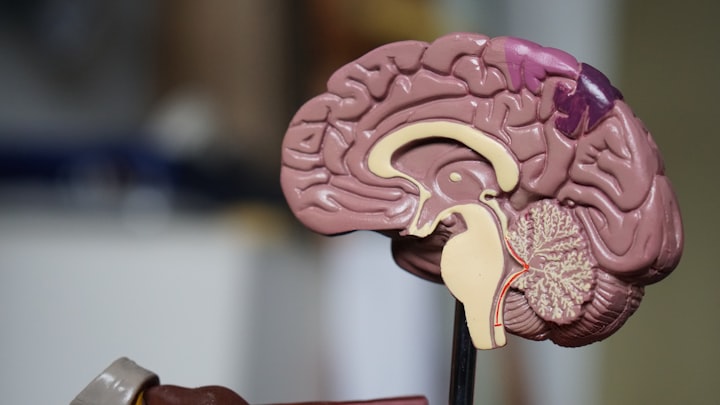Boost Your Memory: 10 Effective Ways to Enhance Cognitive Recall
Strategies Backed by Science to Sharpen Your Memory and Enhance Cognitive Recall

Having a sharp memory is crucial for daily tasks, learning, and overall cognitive function. Fortunately, there are several evidence-based techniques that can help improve memory and enhance cognitive recall. In this article, we will explore the top 10 strategies to boost your memory, backed by scientific research and expert advice.
Get Sufficient Sleep:
Adequate sleep is essential for optimal brain function, consolidation of memories, and information processing. Research studies have consistently shown that sleep deprivation can impair memory performance and cognitive abilities (Alhola & Polo-Kantola, 2007). Aim for 7-9 hours of quality sleep each night to enhance memory retention.
Engage in Regular Physical Exercise:
Physical exercise not only benefits your body but also has a positive impact on cognitive function, including memory. Exercise increases blood flow to the brain and promotes the release of neurotrophic factors that support the growth of new neurons and enhance memory formation (Hillman et al., 2008). Engage in regular aerobic exercises like walking, jogging, or swimming to boost your memory.
Practice Mindfulness and Meditation:
Mindfulness and meditation techniques have been shown to improve attention, focus, and memory. Regular mindfulness practice helps reduce stress, increase working memory capacity, and enhance cognitive flexibility (Zeidan et al., 2010). Dedicate a few minutes each day to mindfulness exercises or guided meditation to enhance your memory.
Challenging your brain with mentally stimulating activities can strengthen neural connections and improve memory. Engage in activities such as puzzles, crosswords, reading, learning a musical instrument, or acquiring new skills to keep your brain active and enhance memory function (Verghese et al., 2003).
Eat a Brain-Healthy Diet:
Nutrition plays a crucial role in maintaining brain health and memory. Consuming a well-balanced diet rich in fruits, vegetables, whole grains, lean proteins, and healthy fats provides essential nutrients and antioxidants that support brain function. Research suggests that diets rich in omega-3 fatty acids, antioxidants, and vitamins C and E can improve memory and cognitive performance (Gómez-Pinilla, 2008).
Break Information into Chunks:
Breaking down complex information into smaller, manageable chunks can aid in memory retention. Chunking allows the brain to process and store information more effectively. By organizing information into meaningful groups or categories, you can enhance memory recall and make it easier to retrieve information when needed (Miller, 1956).
Utilize Mnemonic Devices:
Mnemonic devices are memory aids that help improve recall by associating new information with familiar or vivid imagery, acronyms, or rhymes. Techniques such as the Method of Loci (associating information with specific locations in a familiar place) or creating visual associations can significantly enhance memory retention (Roediger et al., 2011).
Practice Retrieval and Spaced Repetition:
Regularly testing yourself on learned material and spacing out study or review sessions can boost memory retention. The act of retrieving information strengthens memory recall pathways, while spaced repetition allows for better long-term retention by reinforcing the memory over time (Kornell et al., 2009).
Stay Socially Active:
Social interaction and maintaining strong social connections have been linked to better cognitive function, including memory. Engaging in social activities, discussions, and relationships stimulates the brain and supports mental well-being, ultimately benefiting memory and cognitive performance (Fratiglioni et al., 2000).
Manage Stress Levels:
Chronic stress can have detrimental effects on memory and cognitive function. High levels of stress hormones, such as cortisol, can impair memory consolidation and retrieval (Schoofs et al., 2008). Engage in stress-reducing activities like exercise, relaxation techniques, and hobbies to optimize memory function.
Conclusion:
Improving memory and enhancing cognitive recall is achievable through implementing these evidence-based strategies. By incorporating adequate sleep, exercise, mindfulness, mental stimulation, a brain-healthy diet, and utilizing effective memory techniques, you can optimize your memory and cognitive abilities. Remember, consistency and patience are key as these memory-enhancing practices become a part of your daily routine.
Citations:
Alhola, P., & Polo-Kantola, P. (2007). Sleep deprivation: Impact on cognitive performance. Neuropsychiatric Disease and Treatment, 3(5), 553–567.
Hillman, C. H., Erickson, K. I., & Kramer, A. F. (2008). Be smart, exercise your heart: Exercise effects on brain and cognition. Nature Reviews Neuroscience, 9(1), 58–65.
Zeidan, F., Johnson, S. K., Diamond, B. J., David, Z., & Goolkasian, P. (2010). Mindfulness meditation improves cognition: Evidence of brief mental training. Consciousness and Cognition, 19(2), 597–605.
Verghese, J., Lipton, R. B., Katz, M. J., Hall, C. B., Derby, C. A., Kuslansky, G., ... & Buschke, H. (2003). Leisure activities and the risk of dementia in the elderly. New England Journal of Medicine, 348(25), 2508–2516.
Gómez-Pinilla, F. (2008). Brain foods: The effects of nutrients on brain function. Nature Reviews Neuroscience, 9(7), 568–578.
Miller, G. A. (1956). The magical number seven, plus or minus two: Some limits on our capacity for processing information. Psychological Review, 63(2), 81–97.
Roediger, H. L., & Butler, A. C. (2011). The critical role of retrieval practice in long-term retention. Trends in Cognitive Sciences, 15(1), 20–27.
Kornell, N., Bjork, R. A., & Garcia, M. A. (2009). Why tests appear to prevent forgetting: A distribution-based bifurcation model. Journal of Memory and Language, 61(1), 18–34.
Fratiglioni, L., Paillard-Borg, S., & Winblad, B. (2000). An active and socially integrated lifestyle in late life might protect against dementia. The Lancet Neurology, 299(9182), 741–742.
Schoofs, D., Preuss, D., & Wolf, O. T. (2008). Psychosocial stress induces working memory impairments in an n-back paradigm. Psychoneuroendocrinology, 33(5), 643–653.






Comments
There are no comments for this story
Be the first to respond and start the conversation.